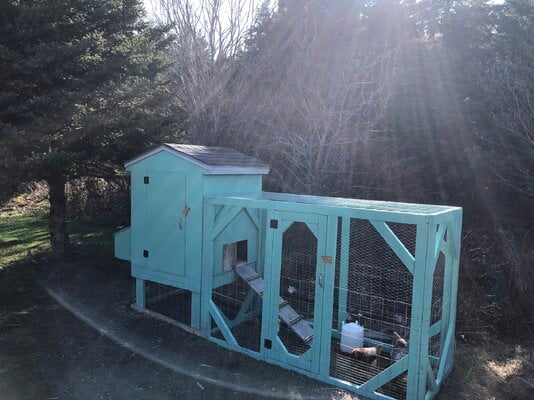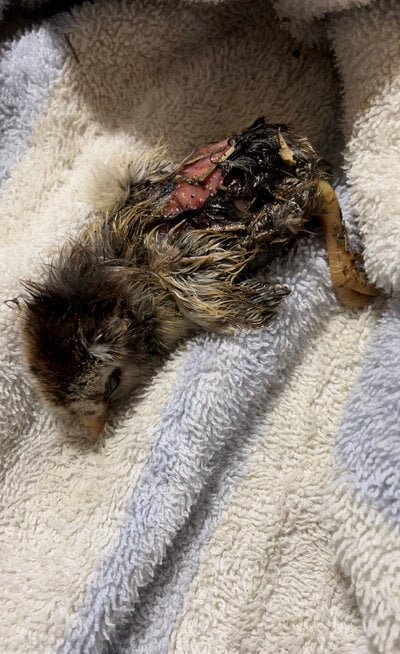NewChickenMomma2020
Hatching
- Aug 2, 2023
- 5
- 2
- 7
Hi everyone, first time poster here! 
We’ve been raising chickens for 3 years now, but this is our first experience with broody hens. We don’t have a rooster, but there’s one next door who visits, so we think he got to some of our hens.
It started with one hen brooding; we waited the 21 days but nothing happened. When we collected the eggs and cracked one open, we found out it had been fertilized but was a quitter, so we left the hen to sit a while longer to see if any more hatched. Another week passed with no chicks hatching, and I tried candling the eggs, but I don’t think I did it correctly. When we cracked two open, they had also been fertilized.

Another week passed, and now a second hen is brooding on the nest. Yesterday we went out and found a dead chick in the coop. It didn’t look like it had anything wrong with it, but it was away from the mom(s), so maybe died of exposure? This morning we found another chick in the coop, half alive. We got it under a heat lamp and tried to give it some water with a pinch of sugar in it. But it died two hours later. My kids are so crushed.
What am I doing wrong here? Should I be collecting the eggs and trying to incubate them away from the hens? I thought it’d be best to leave the chicks with their mom, but I’m not sure why they’re dying. What can I do to help these mommas? They’re both first-time brooders. Thanks so much for any advice!!
We’ve been raising chickens for 3 years now, but this is our first experience with broody hens. We don’t have a rooster, but there’s one next door who visits, so we think he got to some of our hens.
It started with one hen brooding; we waited the 21 days but nothing happened. When we collected the eggs and cracked one open, we found out it had been fertilized but was a quitter, so we left the hen to sit a while longer to see if any more hatched. Another week passed with no chicks hatching, and I tried candling the eggs, but I don’t think I did it correctly. When we cracked two open, they had also been fertilized.
Another week passed, and now a second hen is brooding on the nest. Yesterday we went out and found a dead chick in the coop. It didn’t look like it had anything wrong with it, but it was away from the mom(s), so maybe died of exposure? This morning we found another chick in the coop, half alive. We got it under a heat lamp and tried to give it some water with a pinch of sugar in it. But it died two hours later. My kids are so crushed.
What am I doing wrong here? Should I be collecting the eggs and trying to incubate them away from the hens? I thought it’d be best to leave the chicks with their mom, but I’m not sure why they’re dying. What can I do to help these mommas? They’re both first-time brooders. Thanks so much for any advice!!




